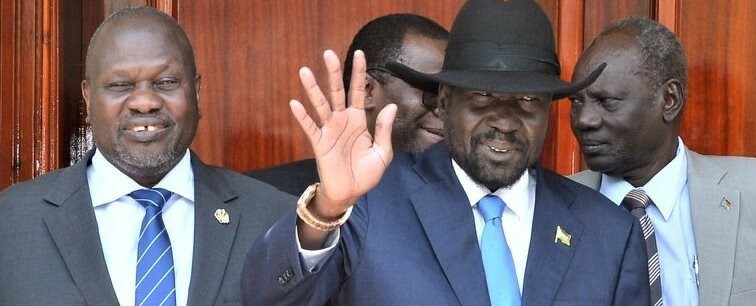Peace monitors in South Sudan said as the second month of the extended transition period begins, a lot of work remains to be done if the roadmap timelines are to be adhered to as promised.
This came in a meeting of the Reconstituted Joint Monitoring and Evaluation Commission (RJMEC) held in Juba on Thursday.
In his opening remarks, RJMEC Chairperson Amb. Maj. Gen. Charles Tai Gituai said the Revitalized Transitional Government of National Unity (RTGoNU) should demonstrate in action its commitment to deliver the transition in time, not simply by word.
In terms of the preparation for elections as stipulated in the roadmap, Amb. Gituai told the RJMEC members that no progress has been made in the reconstitution of the Political Parties Council despite the law having been enacted over eight months ago.
He emphasized that the reconstitution of the Council is critical, paving the way for the registration of political parties, adding that the enactment of the National Elections Act and its operationalization is way behind schedule.
“As a result of these delays, all the elections-related tasks, including the establishment and functioning of institutions that drive the elections process, are behind schedule,” he said.
Gituai commended the recent progress made in the unification of the middle and lower levels of command of the Necessary Unified Forces (NUF), where the parties agreed on a responsibility-sharing ratio of 60:30:10 to the SSPDF (South Sudan People’s Defence Forces), SPLA-IO and SSOA (South Sudan Opposition Alliance) respectively.
“However, the forces which graduated during Phase I are still in training centres, and their delayed redeployment has hindered the commencement of Phase II NUF training,” he noted.
On the humanitarian front, RJMEC Chairperson noted that access and safety of humanitarian workers, goods, and assets remain a challenge.
“These are matters that the RTGoNU should urgently address, including by providing security along humanitarian corridors, protecting humanitarian workers and their assets and holding perpetrators to account,” he said.
In his recommendations, Amb. Gituai urged the transitional government to continue to consult in the spirit of collegial collaboration and consensus in an attempt to address emerging issues during the implementation of the peace agreement.
He reiterated the need for the provision of adequate and predictable funding for the implementation of the critical pending tasks of the agreement, particularly, the constitution-making and electoral processes and the completion of the unification of forces and operationalization of all the enacted laws.
“Finally, faced with the current setbacks and the slow pace of implementation, it is incumbent upon us to redouble our efforts, encourage and support the RTGoNU to accelerate the pace of implementation going forward, in order to provide a much-needed impetus to the peace process,” he concluded.
Implementation of the 2018 peace deal has been slow, and the opposing forces have frequently disagreed over how to share power.
In August last year, the parties to the peace agreement announced the extension of the transitional government’s time in office for another two years, meaning elections would be held in December 2024.




